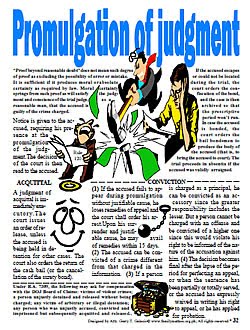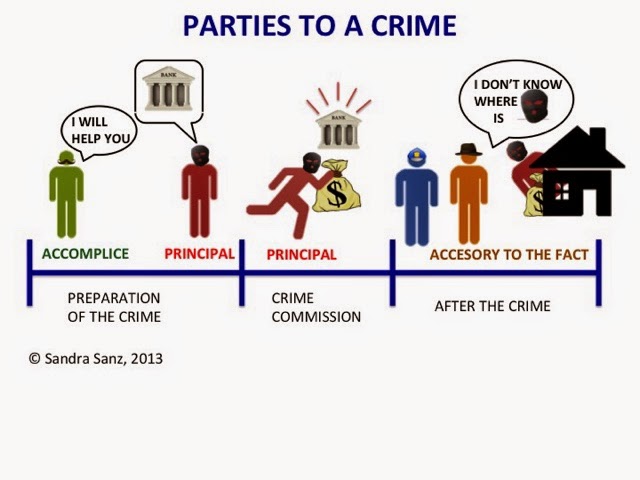Promulgation of Judgment
 |
| This photo is taken from google.com. |
According to the Revised Rules of Criminal Procedures, particularly in Section 1 of Rule 120, judgment is defined as the adjudication by the court that the accused is guilty or not guilty of the offense charged and the imposition on him of the proper penalty and civil liability, if any. It must be written in the official language, personally and directly prepared by the judge and signed by him and shall contain clearly and distinctly a statement of the facts and the law upon which it is based.
Simply stated, the court shall determine whether the accused is guilty or not of the offense charged and the proper penalty shall be imposed upon him and as well as the imposition of the civil liability, if any.
The judgment shall be written in the official language. English is the official language in the Philippine Judicial System.
Said judgment shall be personally and directly prepared by the judge and it shall be signed by him, otherwise, the judgment is invalid.
When we say promulgation of judgment, what does it entail?
The same rules of court defines what promulgation of judgment is.
Accordingly, the judgment is promulgated by reading it in the presence of the accused and any judge of the court in which it was rendered. However, if the conviction is for a light offense, the judgment may be pronounced in the presence of his counsel or representative. When the judge is absent or outside the province or city, the judgment may be promulgated by the clerk of court.
If the accused is confined or detained in another province or city, the judgment may be promulgated by the executive judge of the Regional Trial Court having jurisdiction over the place of confinement or detention upon request of the court which rendered the judgment. The court promulgating the judgment shall have authority to accept the notice of appeal and to approve the bailbond pending appeal; provided, that if the decision of the trial court convicting the accused changed the nature of the offense from non-bailable to bailable, the application for bail can only be filed and resolved by the appellate court.
The proper clerk of court shall give notice to the accused personally or through his bondsman or warden and counsel, requiring him to be present at the promulgation of the decision. If the accused was tried in absentia because he jumped bail or escaped from prison, the notice to him shall be served at his last known address.
In case the accused fails to appear at the scheduled date of promulgation of judgment despite notice, the promulgation shall be made by recording the judgment in the criminal docket and serving him a copy thereof at his last known address or thru his counsel.
If the judgment is for conviction and the failure of the accused to appear was without justifiable cause, he shall lose the remedies available in the Ruled of Court against the judgment and the court shall order his arrest. Within 15 days from promulgation of judgment, however, the accused may surrender and file a motion for leave of court to avail of these remedies. He shall state the reasons for his absence at the scheduled promulgation and if he proves that his absence was for a justifiable cause, he shall be allowed to avail of said remedies within 15 days from notice.


Comments
Post a Comment